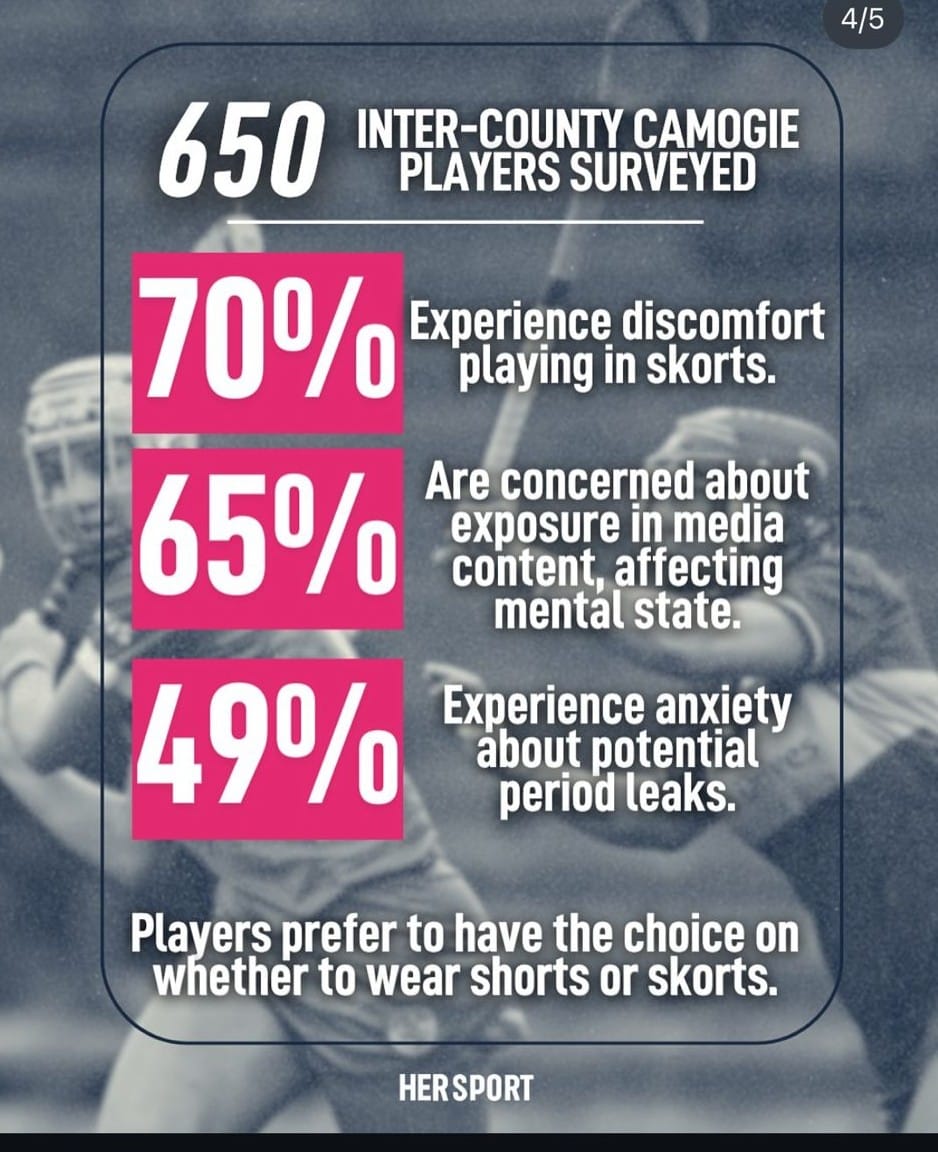The Camogie Stand: When Common Sense Met Resistance

They walked onto the field united, focused, and ready to play. Shorts on, game faces locked. Dublin and Kilkenny’s camogie players didn’t arrive that day to start a movement. They arrived to play their sport — practically, professionally, and on their terms.
But what happened next sparked something bigger than the Leinster semi-final.
Instead of being met with respect or even dialogue, the players were told the match would be abandoned if they didn’t go back into the dressing room and change — not their strategy, not their formation, but their clothes.
This wasn’t a protest for the cameras. It wasn’t staged. It was a practical decision made by elite athletes who are tired of being forced into uniforms that don’t serve them.
Told to change out of shorts and back into skorts, despite players publicly stating that skorts are “uncomfortable and unfit for purpose,” the message was clear:
your comfort, your safety, and your voice do not matter as much as maintaining the status quo.
“I love this game, but I’m sick of being forced to wear a skort that is uncomfortable and unfit for purpose.”
— Aisling Maher, Dublin Captain
“How are female players still having to push for permission to wear shorts while they compete at the highest level of their sport?”
“In no other facet of my life does someone dictate that I have to wear something resembling a skirt because I am a girl. Why is it happening in my sport?”
It’s a question we’ve documented, dissected, and demanded answers to — not just shouted into a void, but turned into real-world wins.
The Why Can’t We campaign has opened doors, shifted policies, and brought women’s voices centre-stage in the equine world.
But moments like this remind us:
The fight isn’t finished.
The systems may nod along in meetings, but on the pitch, they’re still telling women what to wear, how to behave, and what happens if they dare to question it.
This isn’t about uniforms.
It’s about who gets heard — and who gets dismissed.
It’s about control disguised as tradition.
About governance without lived experience.
About women still being told: you may play, but only if you dress the way we tell you to.
The decision to demand a uniform change on the day of a match was not just tone-deaf.
It was outrageous.
It took mental focus off performance and redirected it toward compliance. It disrespected the hours of preparation, the months of training, and the fact that these women are not accessories to a game — they are the game.
We need to stop pretending this is normal.
No male athlete would be told to strip off kit they feel comfortable in.
No male team would be asked to change mid-match because their shorts didn’t fit an outdated template.
Tradition is no longer an excuse.
It can honour our history, but it cannot excuse injustice, impracticality, or inequality.
If a uniform is unfit for purpose, the purpose must shift — not the players.

To every governing body shaping the future of our sports — this is your moment to lead, or to be left behind.
It is no longer acceptable to dismiss player welfare as optional, or uniform practicality as an afterthought.
Athletes deserve better.
Supporters demand better.
And we will not be placated by silence or spin.
This wasn’t a rebellion.
It was a stand for common sense. For dignity. For progress that has been begged for, explained, proven — and still denied.
At Equitas, we stand with Aisling Maher and every player who wore shorts that day.
Not to start a fire — but to stop being burned.
We’re calling on every federation, every sponsor, every decision-maker who claims to support equality in sport:
Your move.
Because the next time someone asks, “Why can’t we?” —
the only answer should be:
You can. And you will.


